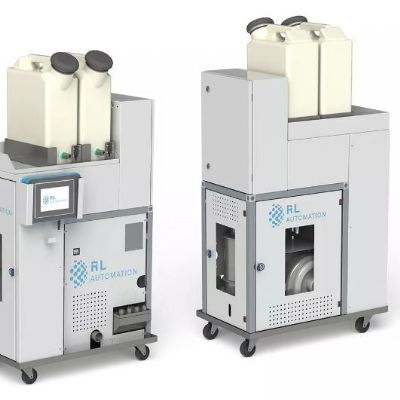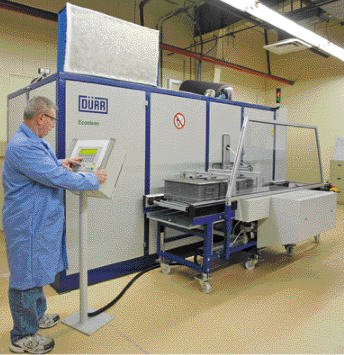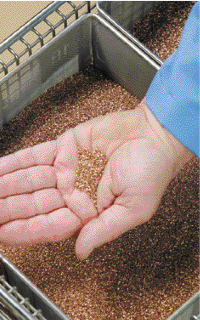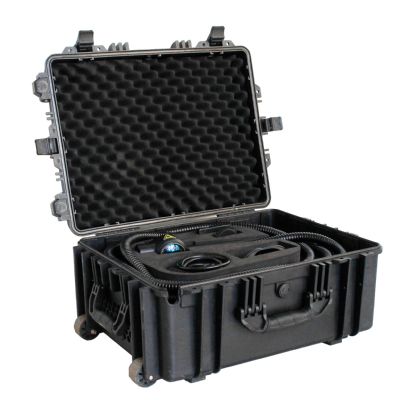Weiss-Aug programs the system to clean stampings of various sizes, configurations and materials. Via the new system, the company typically cleans as many as 12 different small parts per day, ranging from 0.004 to 1.5 in. long. One medical component has an ID of only 0.0967 in., and Weiss-Aug’s IC contacts for PCB connectors are “like grains of sand,” according to Sheridan. Part materials include stainless steel, beryllium, copper, and copper- and nickel-based alloys.
Although some cutting oils are thicker and more difficult to remove, the Dürr system removes them as efficiently as the thinner ones, according to company officials. Despite such variety, Weiss-Aug has found that all customers’ parts can be cleaned by one of the five programs entered into the system when it was originally installed. The machine can store as many as eight individual programs.
“It’s very easy to operate,” says Sheridan. “The operator pushes a button and the basket loads onto the conveyor, goes in, comes out and cools off. That’s another advantage over aqueous cleaning, which is very labor-intensive.”
Drastic Cut in Cycle Time
Efficiency is another key factor in maintaining on-time deliveries. The hydrocarbon system boasts an 80 percent shorter cycle time than the aqueous systems it replaced, with an uptime of 97 percent across two shifts per day. In addition, note Weiss-Aug officials, little maintenance is required, with some of that accomplished without completely shutting down the machine.
Adding to efficiency, Weiss-Aug recycles the cleaning fluid, collecting it with the cutting oil in an onboard distillation system. The mixture is heated to evaporate the cleaning fluid into vapor, which can be used for vapor degreasing or condensed into fresh cleaning fluid and reused. Meanwhile, the cutting oil automatically discharges to a 55-gal. waste drum. The hydrocarbon fluid —more economical than the aqueous solutions previously used—also gets recycled. This, along with the system’s energy efficiency and labor savings, adds to cost savings.
“We’ve reduced operating costs for parts cleaning by 70 to 75 percent per month,” says Sheridan, “and the new system occupies 75 percent less floor space.”The footprint of the Dürr system measures 13.5 by 5 ft., not including the load/unload conveyor. This opened up space for other operations and simplified moving the system into Weiss-Aug. Installation and startup was aided by the fact that the system’s performance had been pre-approved by customers based on test runs at Dürr’s Wixom facility.
Though Weiss-Aug has been able to achieve significantly lower operating costs while maintaining quality and delivery commitments without environmental compromises, the best reason for employing the new cleaning system, according to Sheridan, was obvious.
“Our customers get a better, cleaner part,” he says. “It’s brilliantly clean, and the difference is easy to see.” MF
Information for this article provided by Durr Ecoclean, Inc., Wixom, MI; Tel. 248/960-4630.
See also: Ecoclean, Inc.
Technologies: Finishing
Comments
Must be logged in to post a comment. Sign in or Create an Account
There are no comments posted. Lubrication
LubricationDaubert Cromwell Appoints Rodrigo Martinez Mexico Country Le...
Monday, March 18, 2024
 Pressroom Automation
Pressroom AutomationIntroducing RL Automation GmbH
Monday, July 17, 2023








